
Vienna: The Imperial Jewel of Austria
Vienna, the capital of Austria, is a city that effortlessly blends its imperial history with modern sophistication. Known for its grand palaces, classical music heritage, and vibrant cultural scene, Vienna offers a rich tapestry of experiences for every visitor. Start your journey at the majestic Schönbrunn Palace, a UNESCO World Heritage site and former summer residence of the Habsburg monarchs. Wander through its opulent rooms and expansive gardens, imagining the opulent balls and grand events that once took place here. Don't forget to visit the Tiergarten Schönbrunn, the world's oldest zoo, located within the palace grounds. Stroll along the Ringstrasse, a grand boulevard encircling the city center, and marvel at architectural masterpieces like the State Opera House, the Parliament, and the City Hall. The MuseumsQuartier offers a diverse array of museums and galleries, from the historic Kunsthistorisches Museum to the contemporary Leopold Museum. Vienna is also synonymous with music, being the birthplace of iconic composers like Mozart and Beethoven. Attend a classical concert at the Musikverein or the Vienna State Opera to truly appreciate the city's musical legacy. For a unique experience, visit the House of Music, an interactive museum dedicated to sound and music. Indulge in Vienna's culinary delights by trying a slice of Sachertorte, a rich chocolate cake, at the renowned Café Sacher. Explore the Naschmarkt, Vienna's largest and most popular market, offering a variety of fresh produce, spices, and international delicacies. For a traditional meal, enjoy a Wiener Schnitzel or a hearty Goulash at a local tavern. Vienna's charm lies in its ability to combine the old with the new. Whether you're exploring its historic districts, enjoying its vibrant arts scene, or savoring its culinary treats, Vienna promises an unforgettable experience.
Local tips in Vienna
- Buy a Vienna Card for unlimited public transport and discounts at attractions.
- Visit popular museums early in the morning to avoid crowds.
- Try to catch a live classical music performance for an authentic Viennese experience.
- Explore the city on foot or by bike to fully appreciate its architecture and parks.
- Check the opening hours of attractions, as some may close early on weekends.
Neighbourhoods in Vienna
Vienna: The Imperial Jewel of Austria
Vienna, the capital of Austria, is a city that effortlessly blends its imperial history with modern sophistication. Known for its grand palaces, classical music heritage, and vibrant cultural scene, Vienna offers a rich tapestry of experiences for every visitor. Start your journey at the majestic Schönbrunn Palace, a UNESCO World Heritage site and former summer residence of the Habsburg monarchs. Wander through its opulent rooms and expansive gardens, imagining the opulent balls and grand events that once took place here. Don't forget to visit the Tiergarten Schönbrunn, the world's oldest zoo, located within the palace grounds. Stroll along the Ringstrasse, a grand boulevard encircling the city center, and marvel at architectural masterpieces like the State Opera House, the Parliament, and the City Hall. The MuseumsQuartier offers a diverse array of museums and galleries, from the historic Kunsthistorisches Museum to the contemporary Leopold Museum. Vienna is also synonymous with music, being the birthplace of iconic composers like Mozart and Beethoven. Attend a classical concert at the Musikverein or the Vienna State Opera to truly appreciate the city's musical legacy. For a unique experience, visit the House of Music, an interactive museum dedicated to sound and music. Indulge in Vienna's culinary delights by trying a slice of Sachertorte, a rich chocolate cake, at the renowned Café Sacher. Explore the Naschmarkt, Vienna's largest and most popular market, offering a variety of fresh produce, spices, and international delicacies. For a traditional meal, enjoy a Wiener Schnitzel or a hearty Goulash at a local tavern. Vienna's charm lies in its ability to combine the old with the new. Whether you're exploring its historic districts, enjoying its vibrant arts scene, or savoring its culinary treats, Vienna promises an unforgettable experience.
When is the best time to go to Vienna?
Iconic landmarks you can’t miss
Schönbrunn Palace
Explore Vienna's imperial past at Schönbrunn Palace, a UNESCO World Heritage site with opulent staterooms and stunning Baroque gardens.
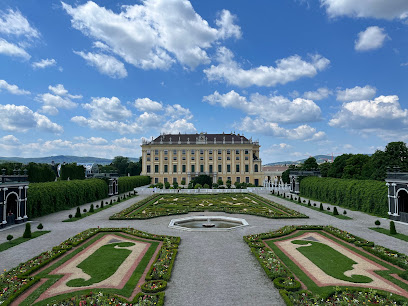
St. Stephen's Cathedral
Discover Vienna's iconic St. Stephen's Cathedral: a Gothic masterpiece with a rich history, stunning architecture, and breathtaking views in the heart of the city.
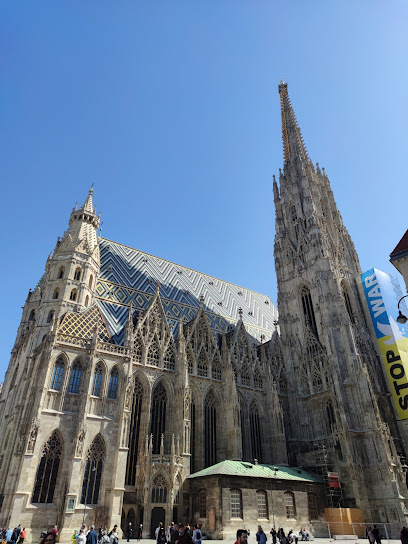
Belvedere Palace
Discover Austrian art and Baroque architecture at the Belvedere Palace, home to Klimt's 'The Kiss' and stunning gardens.

Hofburg
Explore the Hofburg, Vienna: a majestic palace complex with imperial history, museums, and the world-renowned Spanish Riding School.
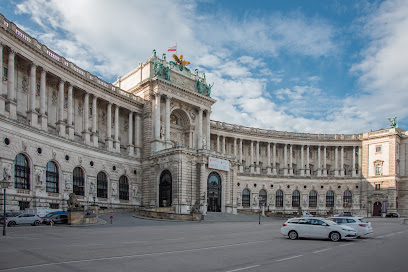
Rathausplatz
Experience Vienna's vibrant heart at Rathausplatz, a year-round hub for festivals, events, and Viennese culture in front of the iconic City Hall.
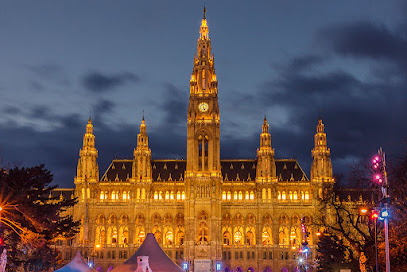
Stadtpark
Discover Vienna's green oasis: Stadtpark, a historic park with iconic monuments, tranquil gardens, and classical concerts in the heart of the city, offering a serene escape.
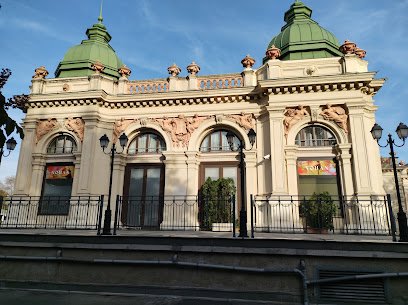
Kunsthistorisches Museum Wien
Explore five millennia of art history in Vienna's magnificent Kunsthistorisches Museum, home to the Habsburgs' imperial collections.

Maria-Theresien-Platz
A grand Viennese square flanked by museums, featuring a monumental tribute to Empress Maria Theresa and vibrant seasonal markets.
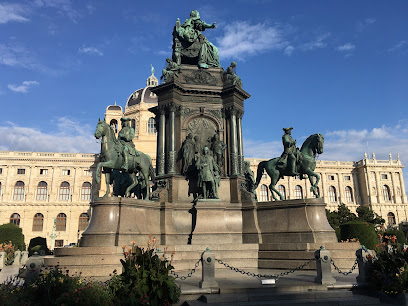
St. Charles's Church
A symbol of Vienna, Karlskirche blends Baroque architecture with historical significance, offering stunning art and panoramic city views.
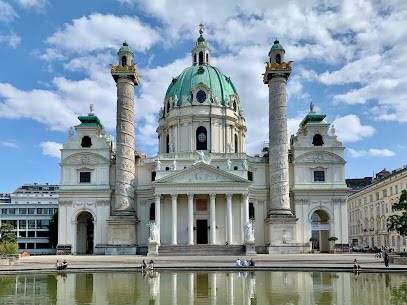
Hundertwasser House
A whimsical apartment house in Vienna designed by Friedensreich Hundertwasser, featuring colorful facades, irregular shapes, and lush greenery.
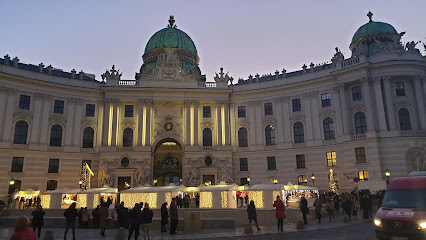
Heldenplatz
Discover Vienna's Heldenplatz: a historic square where imperial grandeur meets pivotal moments in Austrian history and vibrant modern life.

Burggarten
Discover Vienna's imperial history and natural beauty at the Burggarten, a serene park in the city center featuring monuments, a butterfly house, and the elegant Palmenhaus.
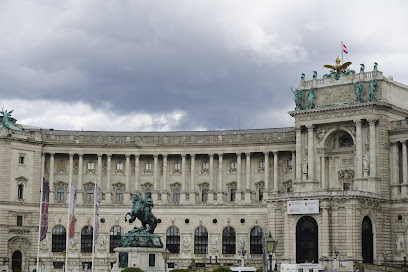
Column of Pest
A Baroque masterpiece in Vienna's heart, commemorating the end of the plague and the city's enduring spirit on the famous Graben street.
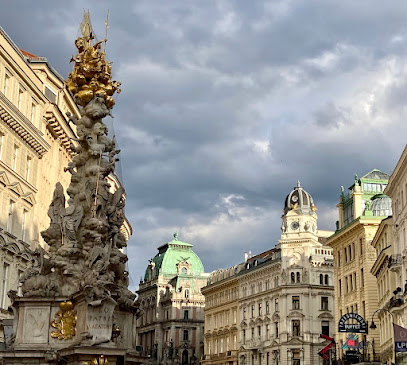
Imperial Crypt
Explore the Imperial Crypt in Vienna, the final resting place of Habsburg emperors and empresses, and discover centuries of Austrian history.
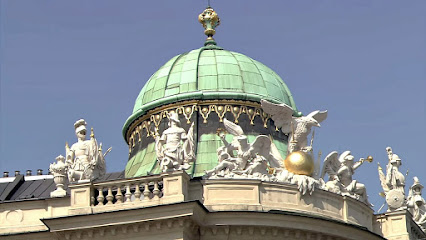
Time Travel Vienna
Experience Vienna's history come to life through 5D cinema, virtual reality, and captivating storytelling in the heart of the city.
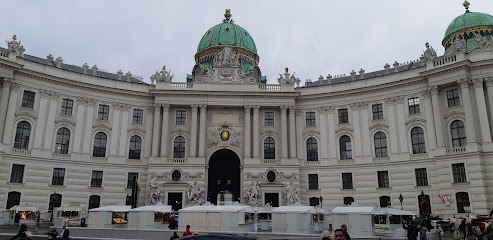
Unmissable attractions to see
Schönbrunn Palace
Explore Schönbrunn Palace, Vienna: a UNESCO World Heritage site with imperial history, Baroque architecture, and stunning gardens.
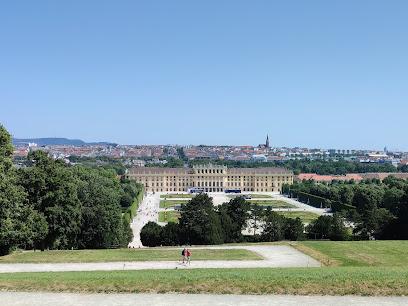
Prater
Experience Vienna's iconic amusement park and green oasis: Thrilling rides, historical charm, and natural beauty await!
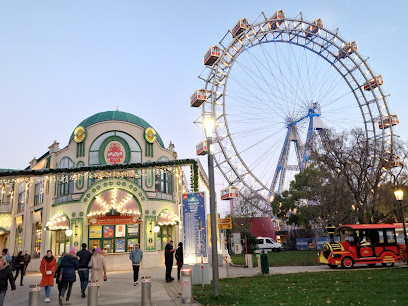
Belvedere Palace
Discover Baroque splendor and world-renowned art at Vienna's Belvedere Palace, home to Klimt's 'The Kiss' and stunning gardens.
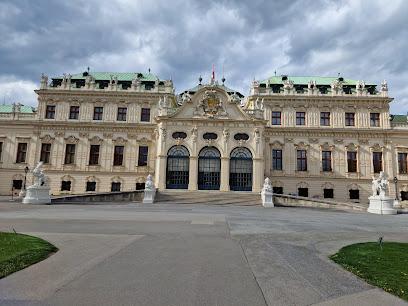
Schönbrunn Palace Park
Explore Vienna's imperial history at Schönbrunn Palace Park, a UNESCO World Heritage site with stunning gardens, grand fountains, and the iconic Gloriette.
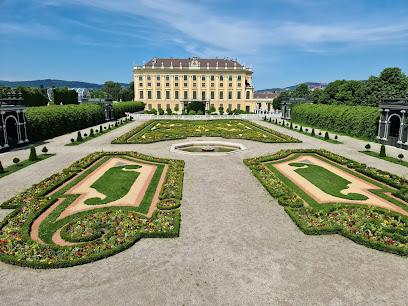
Schönbrunn Zoo
Explore the world's oldest zoo, a UNESCO site in Vienna, blending baroque charm with incredible wildlife encounters and conservation.
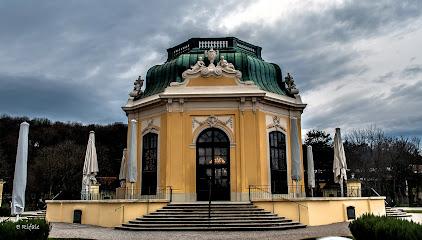
Vienna State Opera
Experience world-class opera and ballet in Vienna's iconic State Opera, a symbol of Austrian culture and history on the Ringstrasse.
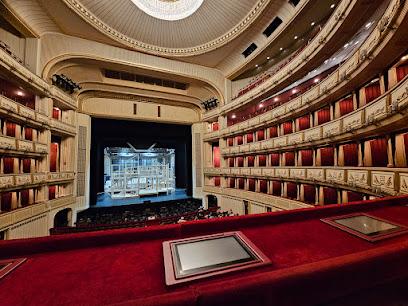
Hofburg
Explore the Hofburg Palace in Vienna, a historic imperial residence with museums, art, and the famous Spanish Riding School.
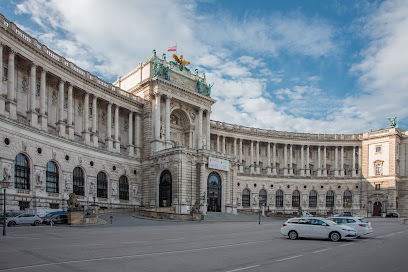
Viennese Giant Ferris Wheel
Experience Vienna from Above: Ride the historic Giant Ferris Wheel in Prater Park for panoramic views and a touch of nostalgia.
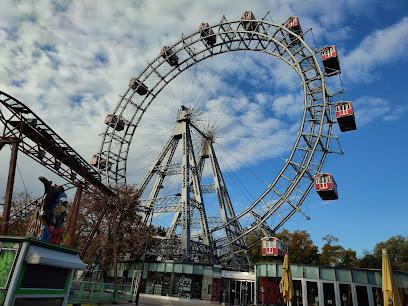
Belvedere-Schlossgarten
Explore Vienna's Belvedere-Schlossgarten: a stunning Baroque garden offering a serene escape and panoramic city views.
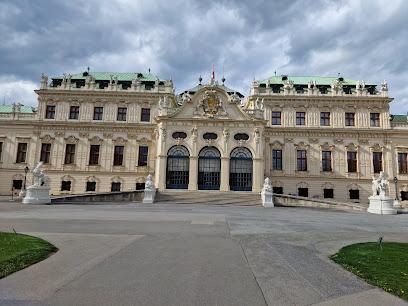
Museum of Natural History Vienna
Explore millions of natural treasures, from meteorites to dinosaurs, in Vienna's magnificent Museum of Natural History.
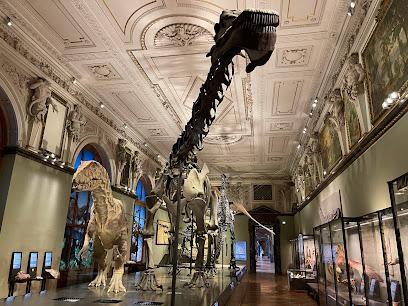
MuseumsQuartier Wien
Explore the artistic soul of Vienna at MuseumsQuartier, a cultural center with museums, vibrant spaces, and an array of events for everyone.

Kunsthistorisches Museum Wien
Explore five millennia of art history in Vienna's magnificent Kunsthistorisches Museum, home to masterpieces from ancient Egypt to the Baroque period.
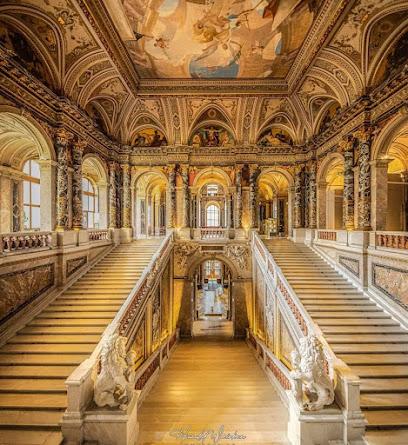
City Park
Escape to Vienna's Stadtpark: A historic green oasis with monuments, music, and tranquil river views in the heart of the city.
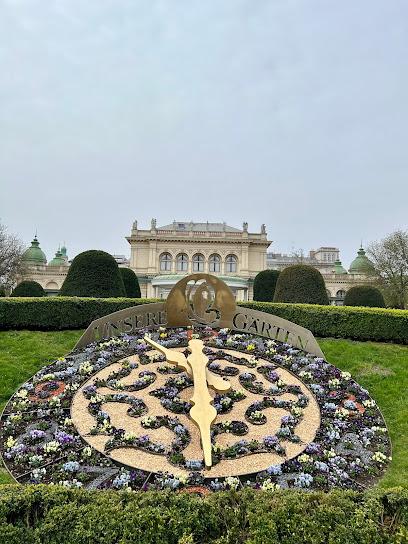
Albertina
Explore masterpieces from Dürer to Picasso at Vienna's Albertina, a world-class art museum in a stunning Habsburg palace.
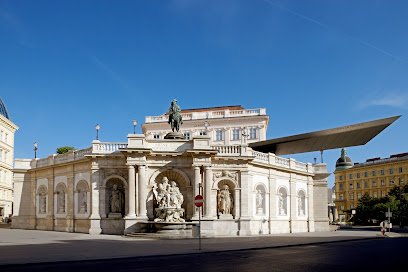
Stadtpark
Discover the charm of Stadtpark, Vienna's enchanting urban park, where history, nature, and culture blend seamlessly. A must-visit for every traveler.
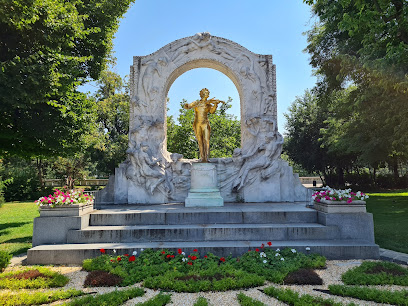
Essential places to dine
ROLLERCOASTERRESTAURANT Vienna
Discover ROLLERCOASTERRESTAURANT in Vienna – where culinary delights meet thrilling rollercoaster rides for an unforgettable dining experience.
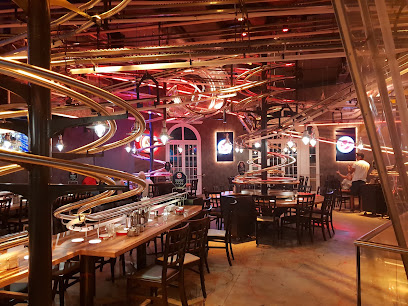
Café & Restaurant Motto am Fluss
Experience exquisite European cuisine with stunning riverside views at Café & Restaurant Motto am Fluss in Vienna.
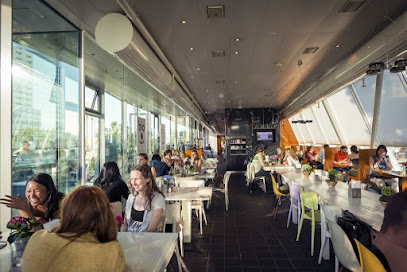
Ribs of Vienna
Discover authentic Austrian cuisine at Ribs of Vienna - home to delicious ribs and a vibrant dining experience in the heart of the city.
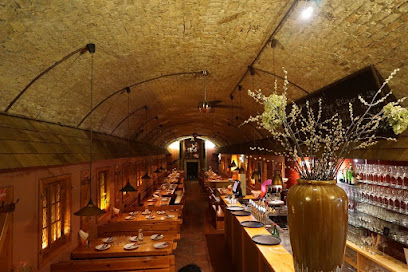
Lugeck
Savor authentic Austrian cuisine at Lugeck, where tradition meets modern dining in Vienna's historic Innere Stadt.
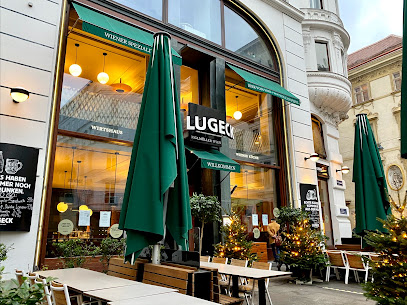
Puerstner
Discover the authentic taste of Austria at Puerstner, where traditional dishes meet modern dining in the heart of Vienna.
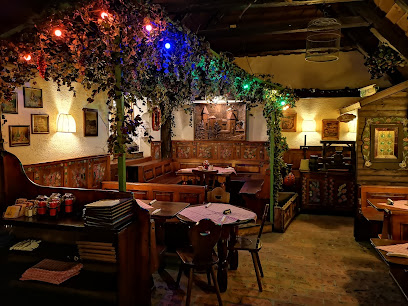
Brasserie Palmenhaus Wien
Experience fine dining amidst lush greenery at Brasserie Palmenhaus Wien - where elegance meets nature in the heart of Vienna.
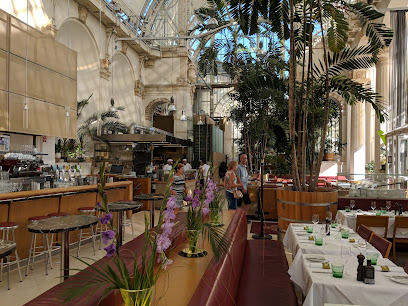
Zum Schwarzen Kameel
Discover the culinary heritage of Vienna at Zum Schwarzen Kameel – where gourmet dining meets rich tradition.
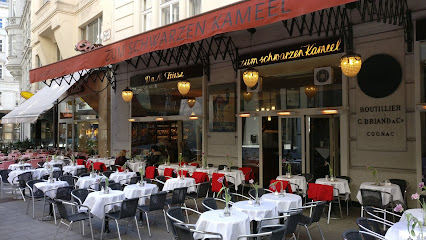
Griechenbeisl
Discover Greeceinbeisl: A historic gem in Vienna offering authentic Austrian dishes in a charming atmosphere.
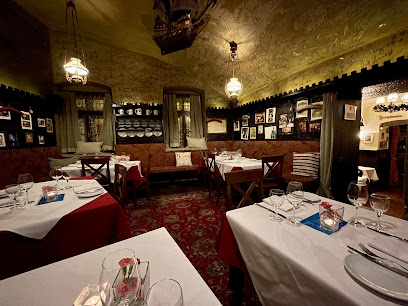
Zwölf Apostelkeller
Discover the heart of Austria at Zwölf Apostelkeller, where tradition meets flavor in an enchanting cellar setting.
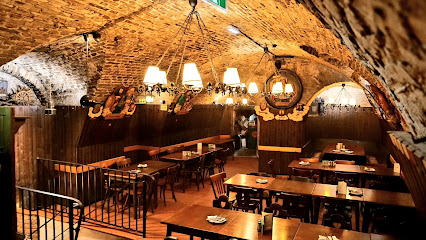
Steirereck
Experience the pinnacle of Austrian fine dining at Steirereck in Vienna—where tradition meets innovation in every exquisite dish.
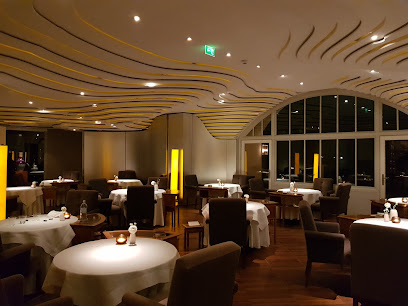
Zum weißen Rauchfangkehrer
Indulge in authentic Austrian cuisine at Zum weißen Rauchfangkehrer, where tradition meets exquisite flavor in the heart of Vienna.
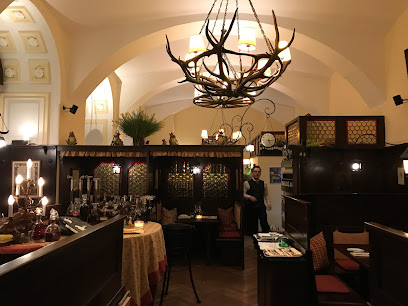
Huth Gastwirtschaft
Discover the essence of Austria at Huth Gastwirtschaft – where tradition meets flavor in a cozy Viennese setting.
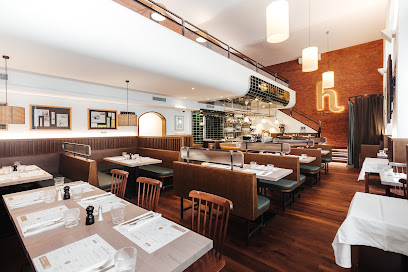
Miznon Vienna
Experience authentic Israeli cuisine at Miznon Vienna – where fresh ingredients meet vibrant flavors in an inviting atmosphere.
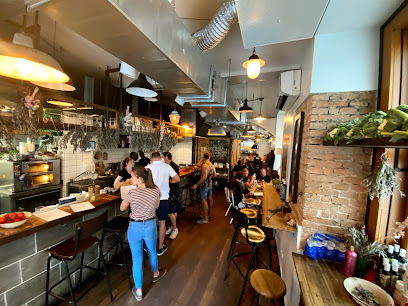
SIXTA
SIXTA: A Culinary Journey Through Authentic Austrian Flavors in the Heart of Vienna.
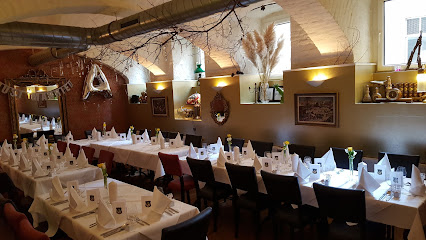
Restaurant Führich
Experience authentic Austrian cuisine with dinner theater at Restaurant Führich in the heart of Vienna.
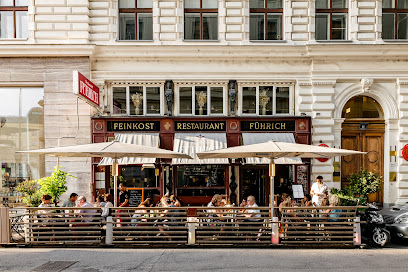
Markets, malls and hidden boutiques
Steffl
Experience luxury shopping at Steffl in Vienna, where high-end fashion meets gourmet delights in a stunning department store.
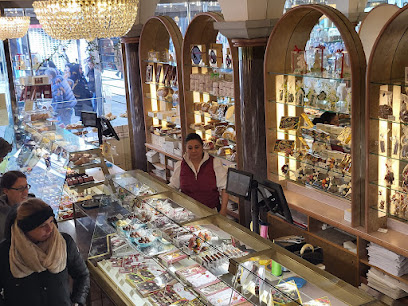
Ringstraßen Galerien
Discover the luxury of shopping and dining at Ringstraßen Galerien, Vienna’s premier shopping destination in a stunning architectural setting.
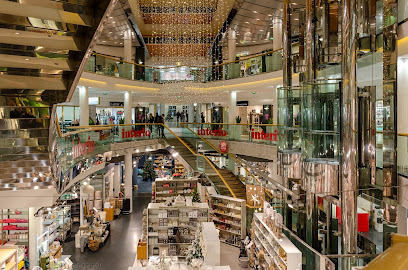
Elbenwald
Discover a magical world of collectibles, clothing, and toys at Elbenwald in Vienna, where nostalgia meets modern pop culture.
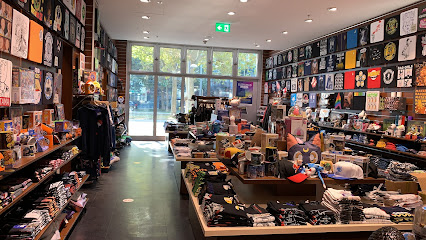
BahnhofCity Wien West
Experience shopping like never before at BahnhofCity Wien West, Vienna's premier shopping mall with diverse stores and dining options for every traveler.
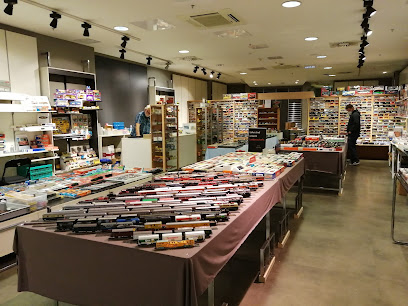
World of Souvenirs
Explore the World of Souvenirs in Vienna, where unique gifts and local crafts meet the charm of Austrian culture.
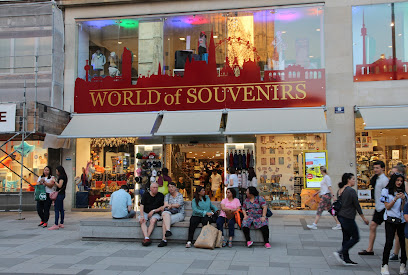
Bootik 54
Discover unique vintage and contemporary fashion at Bootik 54, Vienna's stylish clothing store for men and women.
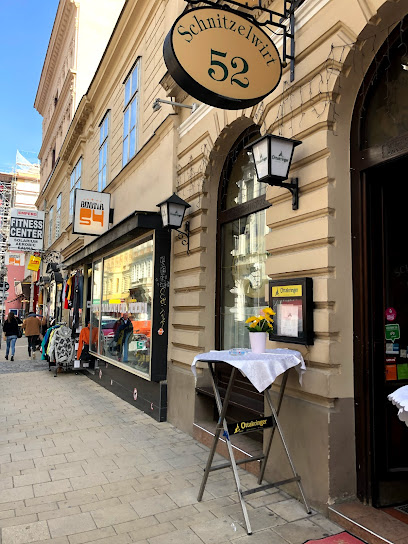
Kauf Dich Glücklich Wien
Explore Kauf Dich Glücklich Wien for a unique shopping experience featuring stylish clothing and shoes in the heart of Vienna's Neubau district.
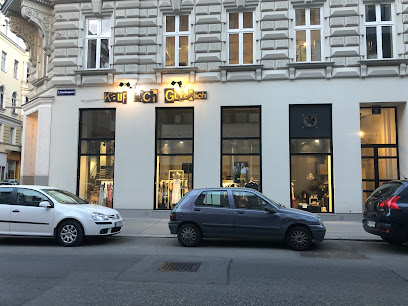
Shanta Concept Store
Discover Shanta Concept Store in Vienna: a charming gift shop offering unique gifts and stylish bags that capture the essence of the city's creativity.
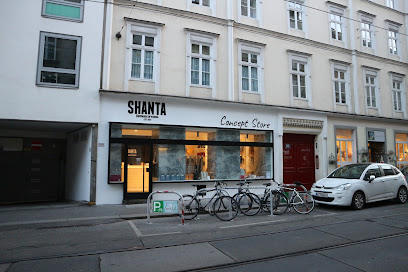
Planet Vienna
Explore Planet Vienna for unique souvenirs that capture the essence of Austria's rich culture and history.
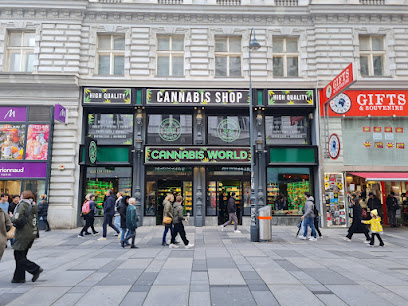
THE WORLD TO GO VIENNA
Explore The World To Go Vienna for unique souvenirs and gifts that reflect the rich culture and artistry of the city, perfect for every traveler.
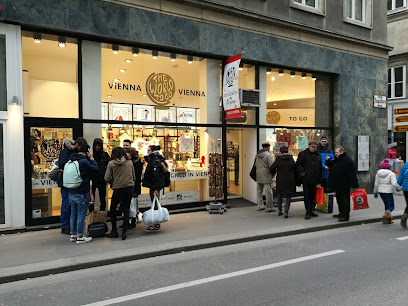
Oh Vienna Souvenir Shop
Discover unique Viennese gifts and keepsakes at Oh Vienna Souvenir Shop, where every item captures the city's rich culture and charm.
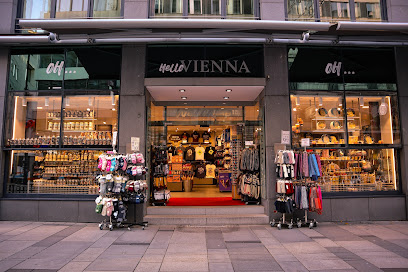
Museum Shop
Explore the Museum Shop in Vienna for unique souvenirs and gifts reflecting the rich culture and history of Austria, located near Schönbrunn Palace.
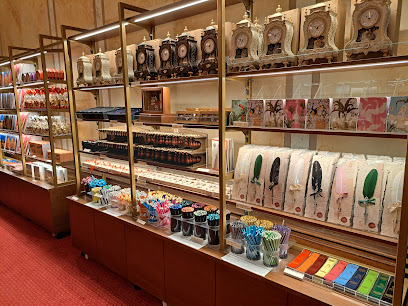
DIE VERMISCHTE WARENHANDLUNG
Explore Vienna's hidden gem for unique gifts and local crafts at Die Vermischte Warenhandlung, a charming shop in the heart of the city.
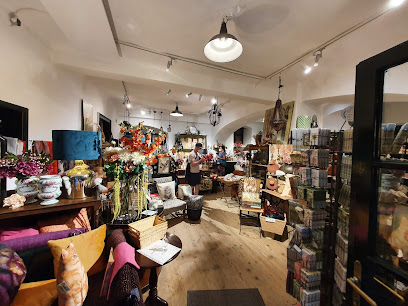
MAK Design Shop
Explore unique gifts and artistic treasures at the MAK Design Shop in Vienna, where creativity meets craftsmanship.
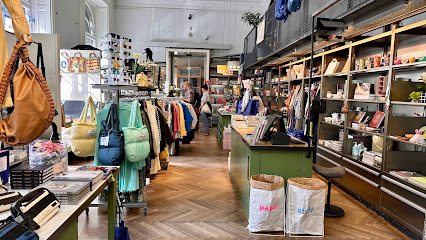
FLO Vintage - Nostalgic Mode - Ingrid Raab
Explore the charm of vintage fashion at FLO Vintage, a must-visit destination in Vienna for unique clothing and accessories.
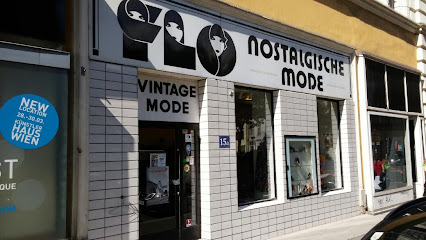
Essential bars & hidden hideouts
Loos American Bar
Discover the elegance of Loos American Bar in Vienna, where classic cocktails and modern design create an unforgettable nightlife experience.
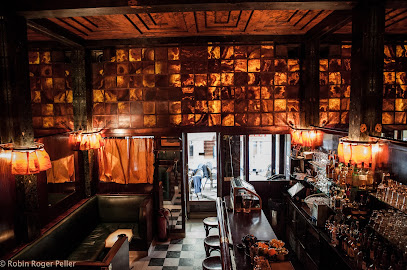
Kleinod
Discover Kleinod, a stylish cocktail bar in Vienna, offering handcrafted drinks in an elegant atmosphere that embodies the city's vibrant nightlife.
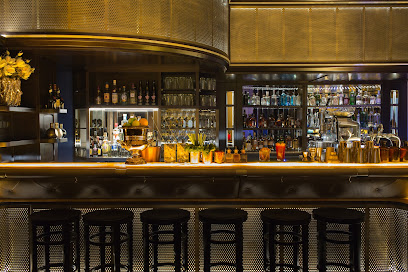
Needle Vinyl Bar
Discover a unique cocktail haven in Vienna, where exquisite drinks and vintage vinyl create an unforgettable atmosphere.
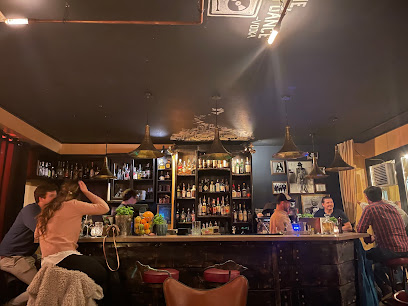
Grüner Kakadu
Discover the vibrant cocktail scene at Grüner Kakadu, Vienna's premier cocktail bar known for its creative drinks and lively atmosphere.
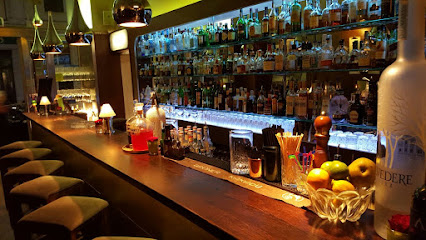
Josef Cocktailbar
Josef Cocktailbar: A stylish bar in Vienna serving innovative cocktails in a vibrant atmosphere, perfect for a night out with friends or a romantic evening.
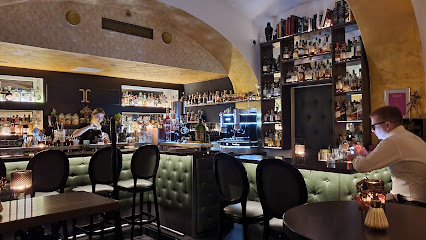
Roberto American Bar
Experience the vibrant nightlife of Vienna at Roberto American Bar, renowned for its exquisite cocktails and lively atmosphere.
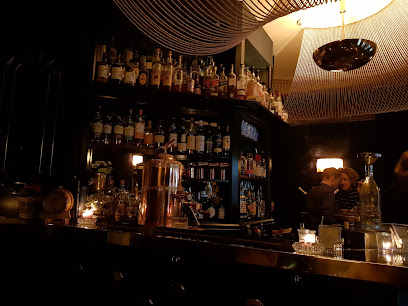
Barfly's
Discover Barfly's in Vienna, a cocktail bar renowned for its creative drinks and vibrant nightlife, perfect for tourists seeking a lively evening.
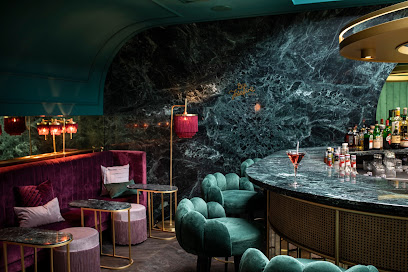
Kruger’s American Bar
Discover the vibrant ambiance and expertly crafted cocktails at Kruger’s American Bar, a must-visit destination for nightlife in Vienna.
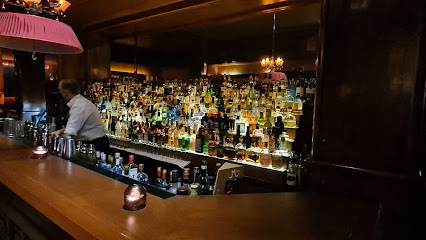
Hammond Bar
Experience the vibrant atmosphere and exquisite drinks at Hammond Bar, Vienna's go-to destination for cocktails and coffee.
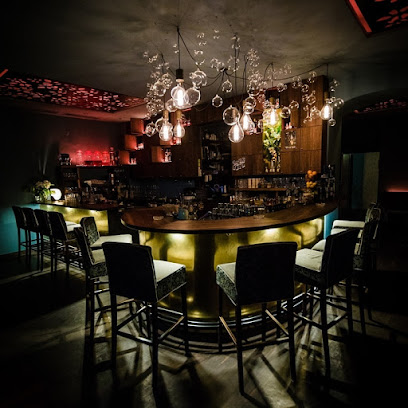
Dino's Apothecary Bar
Experience the art of mixology at Dino's Apothecary Bar, Vienna's premier cocktail destination with a creative twist.
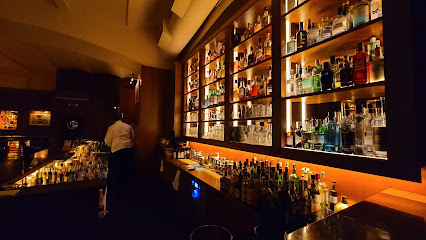
First American Bar
Discover the lively heart of Vienna at First American Bar, where exceptional cocktails and vibrant atmosphere create unforgettable nights.
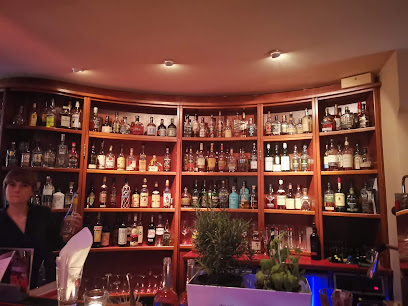
Roter Engel
Experience the vibrant nightlife of Vienna at Roter Engel, a stylish lounge known for its great music and welcoming atmosphere.
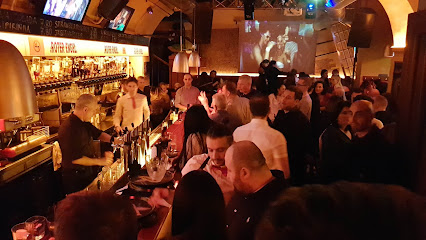
First Floor
Discover the elegance of First Floor, Vienna's premier bar for exquisite cocktails and a vibrant nightlife experience.
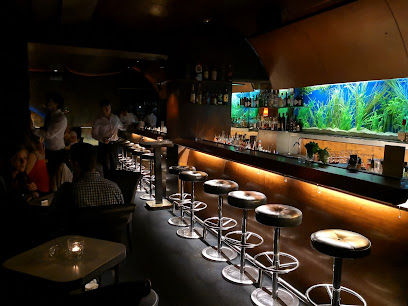
IF DOGS RUN FREE
Discover the charm of IF DOGS RUN FREE, a pet-friendly bar and café in Vienna, perfect for relaxation and social gatherings.
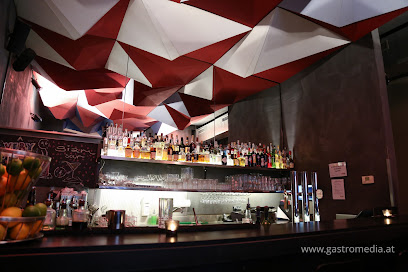
Needle Vinyl Bar 33rpm
Experience the vibrant nightlife of Vienna at Needle Vinyl Bar 33rpm, where expertly crafted cocktails meet the nostalgic sounds of vinyl.
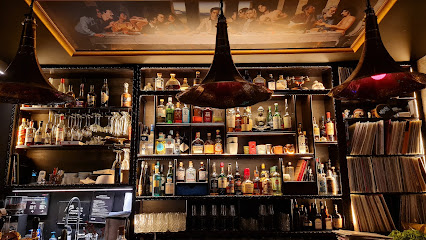
Local Phrases
-
- HelloGriaß di
[gree-ahss dee] - GoodbyeServus
[ser-voos] - YesJa
[yah] - NoNein
[nine] - Please/You're welcomeBitte
[bit-teh] - Thank youDanke
[dahn-keh] - Excuse me/SorryEntschuldigung
[ent-shool-dee-goong] - How are you?Wie geht's?
[vee geyts] - Fine. And you?Gut. Und dir?
[goot oond deer] - Do you speak English?Sprechen Sie Englisch?
[shpre-khen zee eng-lish] - I don't understandIch verstehe nicht
[ikh fer-shte-he nikht]
- HelloGriaß di
-
- I'd like to see the menu, pleaseIch hätte gerne die Speisekarte, bitte
[ikh heh-teh gair-neh dee shpy-zeh-kahr-teh, bit-teh] - I don't eat meatIch esse kein Fleisch
[ikh es-seh kine flysh] - Cheers!Prost!
[prohst] - I would like to pay, pleaseIch möchte bitte zahlen
[ikh merkhte bit-teh tsah-len]
- I'd like to see the menu, pleaseIch hätte gerne die Speisekarte, bitte
-
- Help!Hilfe!
[hil-feh] - Go away!Geh weg!
[geh vehg] - Call the Police!Rufen Sie die Polizei!
[roo-fen zee dee po-lee-tsay] - Call a doctor!Rufen Sie einen Arzt!
[roo-fen zee i-nen artsht] - I'm lostIch habe mich verirrt
[ikh hah-beh meeh fer-eert] - I'm illIch bin krank
[ikh been krunk]
- Help!Hilfe!
-
- I'd like to buy...Ich möchte kaufen...
[ikh merkhte kow-fen...] - I'm just lookingIch schaue nur
[ikh shau-eh noor] - How much is it?Wie viel kostet es?
[vee feel kaws-teht es] - That's too expensiveDas ist zu teuer
[dahs ist tsoo toy-er] - Can you lower the price?Können Sie den Preis senken?
[kern-en zee den prees zen-ken]
- I'd like to buy...Ich möchte kaufen...
-
- What time is it?Wie spät ist es?
[vee shpet ist es] - It's one o'clockEs ist ein Uhr
[es ist iyn oor] - Half past (10)Halb (zehn)
[halb (tsain)] - MorningMorgen
[mor-gen] - AfternoonNachmittag
[nahkh-mit-tahg] - EveningAbend
[ah-bent] - YesterdayGestern
[gehs-tern] - TodayHeute
[hoy-teh] - TomorrowMorgen
[mor-gen] - 1Eins
[iyns] - 2Zwei
[tsvey] - 3Drei
[drey] - 4Vier
[feer] - 5Fünf
[fynf] - 6Sechs
[zeks] - 7Sieben
[zee-ben] - 8Acht
[akht] - 9Neun
[noyn] - 10Zehn
[tsain]
- What time is it?Wie spät ist es?
-
- Where's a/the...?Wo ist ein/der...?
[vo ist iyn/dehr] - What's the address?Was ist die Adresse?
[vas ist dee ah-dre-see] - Can you show me (on the map)?Können Sie mir (auf der Karte) zeigen?
[kern-en zee meer (ouf dehr kar-teh) tsai-gen] - When's the next (bus)?Wann kommt der nächste (Bus)?
[van kommt dehr nehkh-steh (boos)] - A ticket (to ....)Eine Fahrkarte (nach ....)
[iyn-eh far-kahr-teh (nakh)]
- Where's a/the...?Wo ist ein/der...?
History of Vienna
-
Vienna's history dates back to Roman times when it was known as Vindobona. The Romans established this military camp in the 1st century AD to guard the empire against Germanic tribes, marking the beginning of Vienna's strategic importance.
-
During the Middle Ages, Vienna grew into a significant trading hub. In 1155, Duke Henry II Jasomirgott made Vienna the capital of the Babenberg dynasty, laying the foundation for its development as a major city. The construction of St. Stephen's Cathedral began in the 12th century, becoming a symbol of Vienna's architectural and cultural heritage.
-
The Habsburgs began their rule in Vienna in 1278, turning it into the center of their vast empire. Under the Habsburgs, Vienna flourished as a cultural and political hub. The establishment of the University of Vienna in 1365 and the construction of the Hofburg Palace are testaments to this era.
-
Vienna faced two major Ottoman sieges in 1529 and 1683. The city's successful defense in both instances, particularly the Battle of Vienna in 1683, was crucial in halting the Ottoman Empire's advance into Europe. These events significantly shaped Vienna's military and cultural landscape.
-
The 17th and 18th centuries saw Vienna transform into a Baroque masterpiece. Grand structures like the Schönbrunn Palace and the Belvedere Palace were built, reflecting the city's artistic and architectural zenith. This period also saw the rise of Vienna as a musical capital, with composers like Mozart and Haydn gracing its courts.
-
The late 18th and early 19th centuries marked the height of Vienna's influence in classical music. The city became home to musical giants such as Ludwig van Beethoven, Franz Schubert, and later, Johannes Brahms. The Viennese Classical Period cemented Vienna's reputation as the world's music capital.
-
The Industrial Revolution brought significant changes to Vienna in the 19th century. The city expanded rapidly, and infrastructure improvements like the construction of the Ringstrasse, a grand boulevard encircling the inner city, were undertaken. This era also saw the rise of intellectual movements and the establishment of coffeehouse culture.
-
The turn of the 20th century, known as the Fin de Siècle, was a period of artistic and intellectual innovation in Vienna. The city became a melting pot of ideas, with figures like Sigmund Freud, Gustav Klimt, and Egon Schiele contributing to its vibrant cultural scene. The Secessionist movement in art and architecture also emerged during this time.
-
Vienna experienced significant upheaval during the World Wars. After World War I, the Austro-Hungarian Empire dissolved, leading to economic and political challenges. World War II brought further devastation, including the annexation of Austria by Nazi Germany in 1938. The city was heavily bombed and occupied by Allied forces until 1955 when Austria regained its independence.
-
Following World War II, Vienna underwent extensive reconstruction. The city emerged as a symbol of Cold War diplomacy, hosting numerous international organizations, including the United Nations. Today, Vienna is known for its high quality of life, vibrant arts scene, and historical significance, continuing to be a cultural and political hub in Europe.
Vienna Essentials
-
Vienna is well-connected internationally through Vienna International Airport (VIE), located approximately 18 kilometers southeast of the city center. The airport offers direct flights from major cities around the world. From the airport, you can reach the city center by taking the City Airport Train (CAT), which takes about 16 minutes, or by using the S-Bahn (S7) or airport buses. If traveling by train, Vienna's main train station, Wien Hauptbahnhof, connects to various European cities. For those driving, Vienna is accessible via major highways and has several parking facilities.
-
Vienna boasts an efficient public transportation system operated by Wiener Linien, including U-Bahn (subway), trams, and buses. Tickets can be purchased at stations, online, or via mobile apps. A 24-hour, 48-hour, or 72-hour Vienna City Card provides unlimited travel on public transport and discounts at many attractions. Taxis and ride-sharing services like Uber are also available. For a more leisurely pace, consider renting a bicycle from Citybike Wien, with numerous docking stations around the city.
-
The currency in Vienna is the Euro (EUR). Credit and debit cards are widely accepted in most hotels, restaurants, and shops. It's advisable to carry some cash for smaller establishments, markets, and tips. ATMs are abundant and can be found throughout the city. Currency exchange offices are available at the airport, train stations, and in the city center.
-
Vienna is generally a safe city for tourists. However, as with any major city, it's important to stay vigilant. Pickpocketing can occur in crowded areas such as tourist attractions and public transport. Districts like Favoriten (10th District) and certain parts of the Gürtel area are known for higher crime rates, particularly at night. Always keep an eye on your belongings and avoid walking alone in poorly lit areas after dark.
-
In case of emergency, dial 112 for immediate assistance. Police (Polizei) can be reached at 133, and for medical emergencies, dial 144. Vienna has several hospitals and clinics with English-speaking staff. Pharmacies (Apotheken) are found throughout the city, with some operating 24/7. It's recommended to have travel insurance that covers medical emergencies. The Austrian Red Cross offers English-language assistance in emergencies.
-
Fashion: Do dress smart-casual, especially when dining out or attending concerts. Avoid overly casual attire in more formal settings. Religion: Do respect religious sites by dressing modestly and maintaining silence. Avoid taking photos where prohibited. Public Transport: Do validate your ticket before boarding. Don't eat or drink on public transport. Greetings: Do greet people with a firm handshake. Austrians value punctuality, so be on time for appointments. Eating & Drinking: Do try traditional Viennese dishes like Wiener Schnitzel and Sachertorte. Don't leave a tip on the table; instead, round up the bill or hand it to the server directly.
-
To experience Vienna like a local, take a stroll through the Naschmarkt, the city's most famous market, offering a variety of fresh produce and international delicacies. Enjoy a coffee at a traditional Viennese café, such as Café Central or Café Sacher. Attend a classical music concert or opera at one of Vienna's renowned venues like the Wiener Staatsoper. For a unique perspective, visit the Prater amusement park and take a ride on the historic Giant Ferris Wheel (Riesenrad). Explore the hidden courtyards and narrow streets of the Spittelberg district, known for its charming boutiques and bars.
Nearby Cities to Vienna
-
Things To Do in Eisenstadt
-
Things To Do in Bratislava
-
Things To Do in Sopron
-
Things To Do in Trnava
-
Things To Do in Szombathely
-
Things To Do in Brno
-
Things To Do in Gyor
-
Things To Do in Trenčín
-
Things To Do in Graz
-
Things To Do in Linz
-
Things To Do in Zalaegerszeg
-
Things To Do in České Budějovice
-
Things To Do in Český Krumlov
-
Things To Do in Olomouc
-
Things To Do in Tatabanya



































